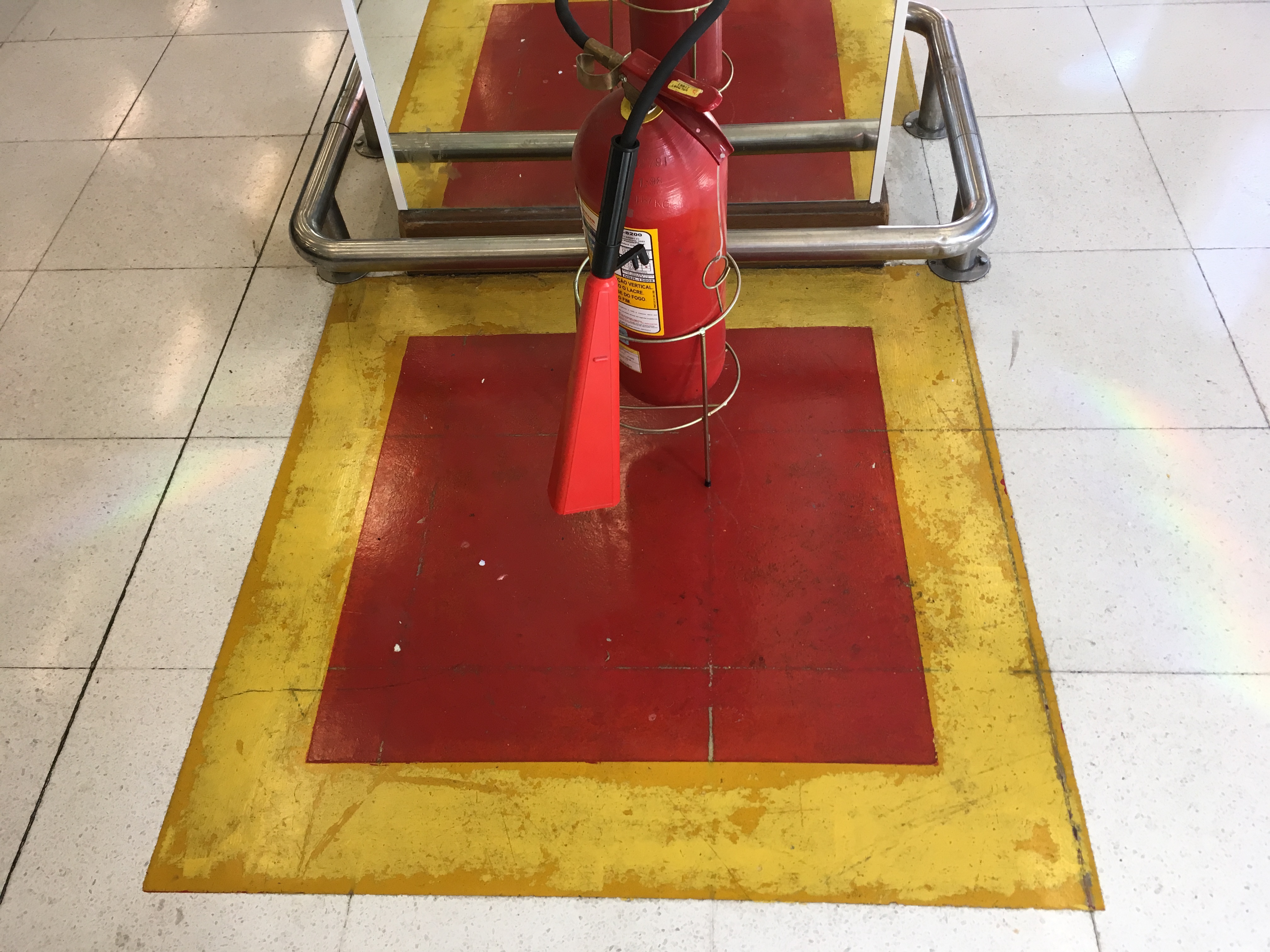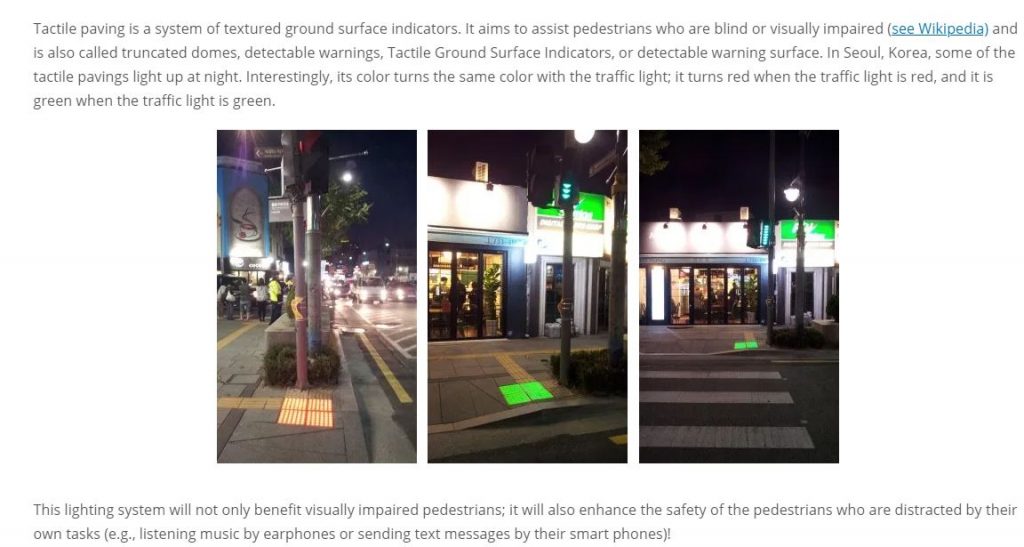How could we make passing pedestrians stop and look at something? One solution is to apply technology. For instance, tactile pavings or tactile ground surface indicators tell them when to cross roads.
Another solution is to apply design. While I visited Curitiba in Brazil, I was always attracted by fire extinguishers. This is because they are located inside red-yellow squares painted on the ground.
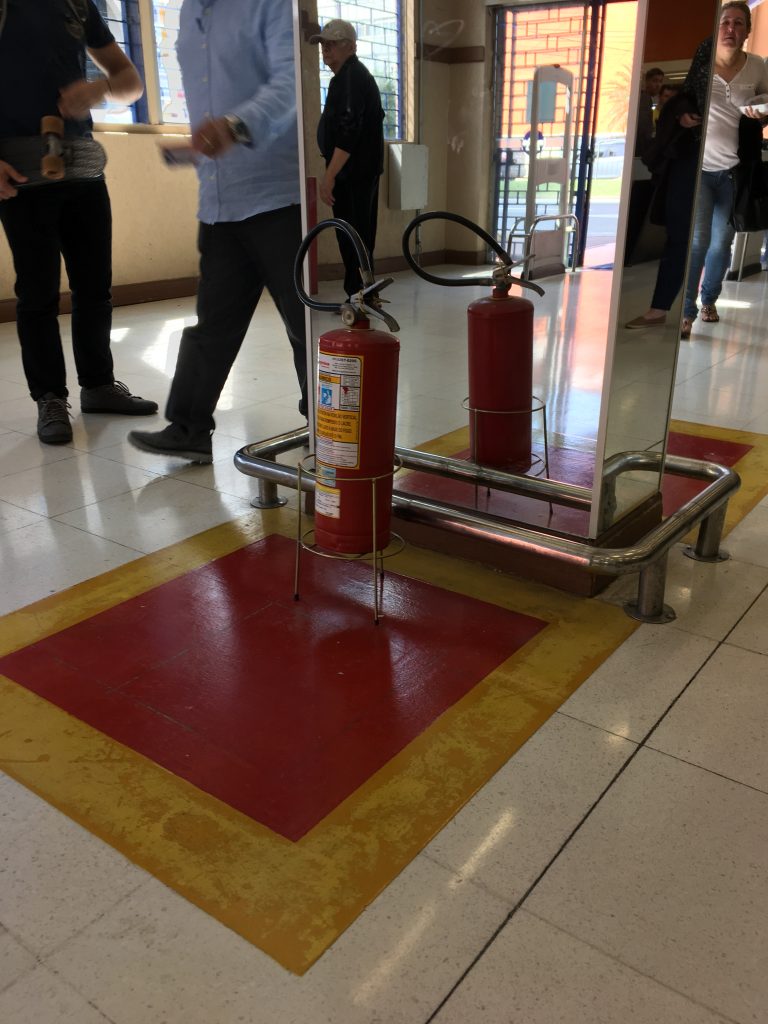
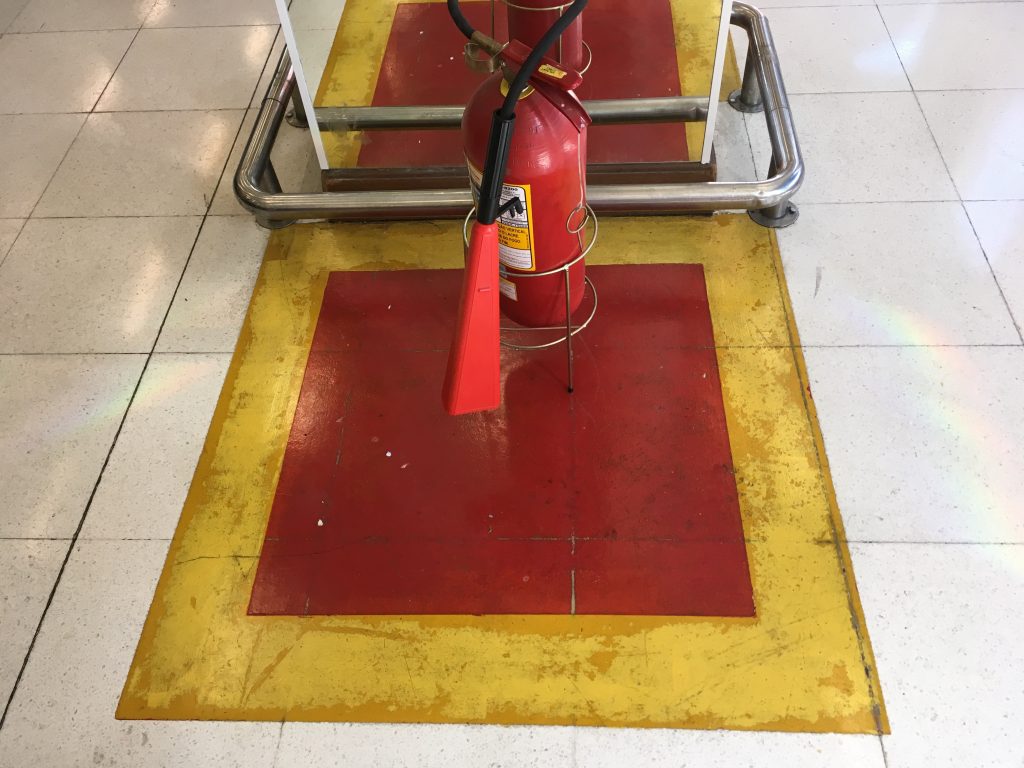
Interestingly, the same rule applies when fire extinguishers are above the ground. Red-yellow squares are painted on the ground even when fire extinguishers are hung on the wall.
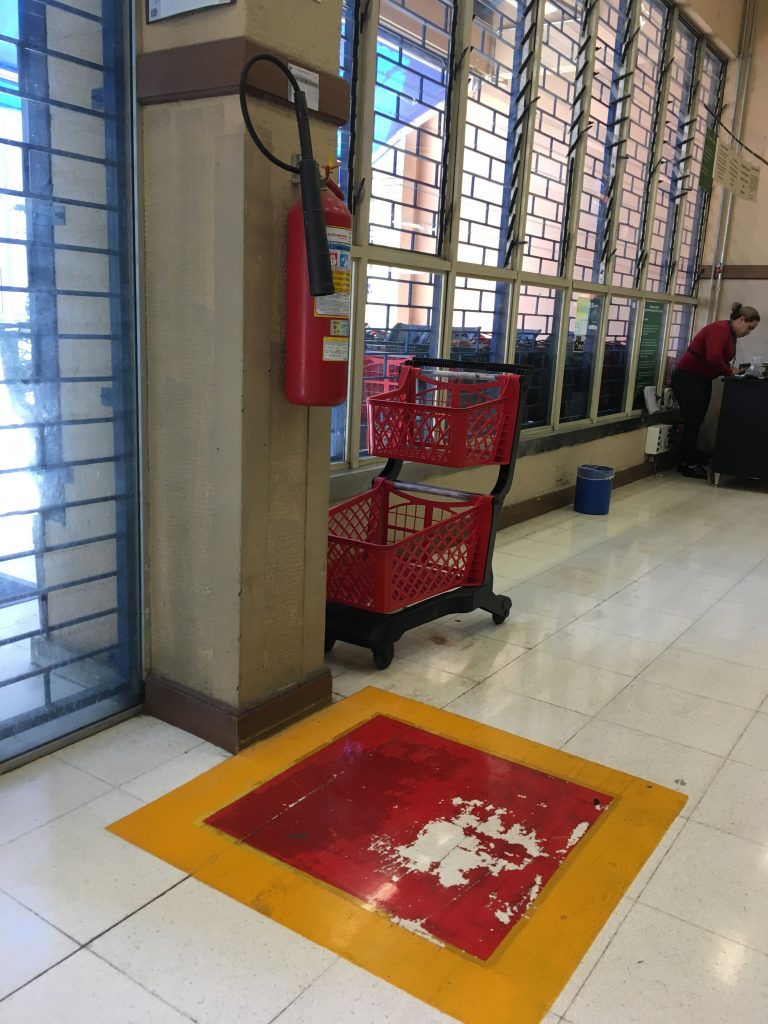
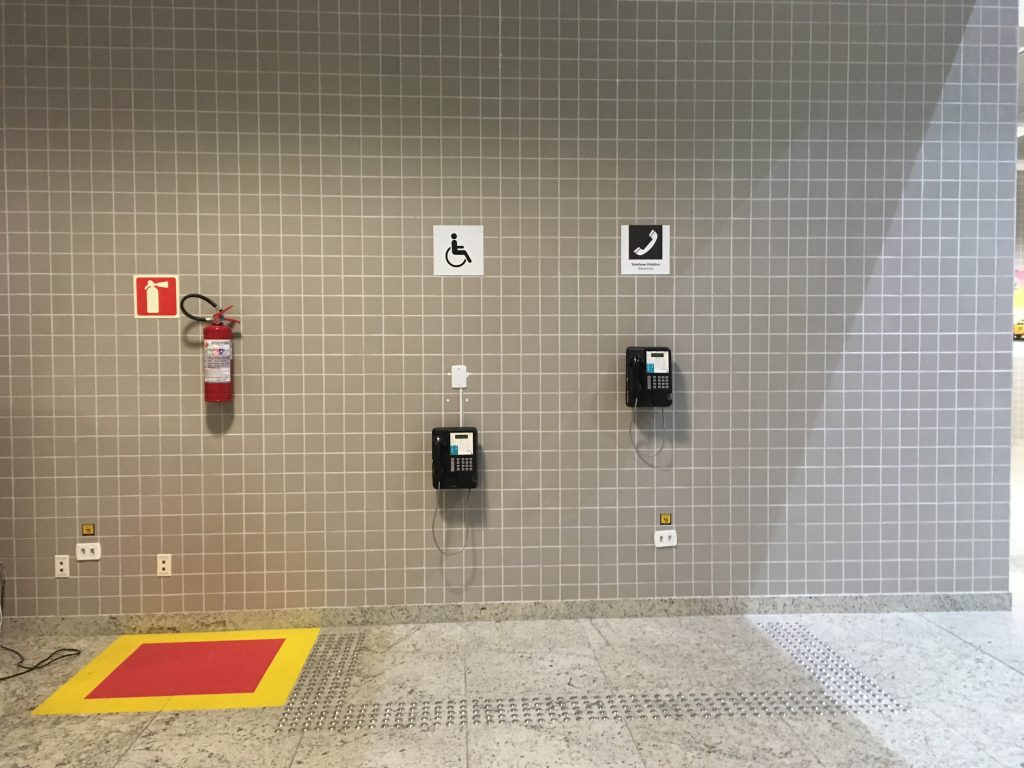
Design beats technology in Curitiba.
***
Reference
Labrecque, L. I., & Milne, G. R. (2012). Exciting red and competent blue: the importance of color in marketing. Journal of the Academy of Marketing Science, 40(5), 711-727.
From beverages to consumer electronics, marketers are using color in innovative ways. Despite this, little academic research has investigated the role that color plays in marketing. This paper examines how color affects consumer perceptions through a series of four studies. The authors provide a framework and empirical evidence that draws on research in aesthetics, color psychology, and associative learning to map hues onto brand personality dimensions (Study 1), as well as examine the roles of saturation and value for amplifying brand personality traits (Study 2). The authors also demonstrate how marketers can strategically use color to alter brand personality and purchase intent (Study 3), and how color influences the likability and familiarity of a brand (Study 4). The results underscore the importance of recognizing the impact of color in forming consumer brand perceptions.
